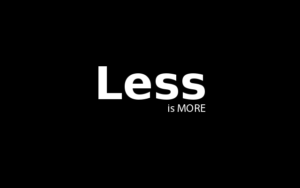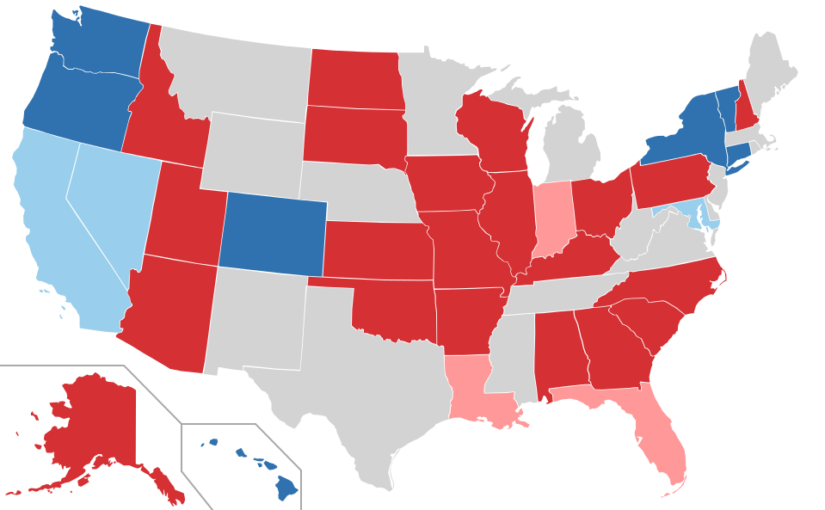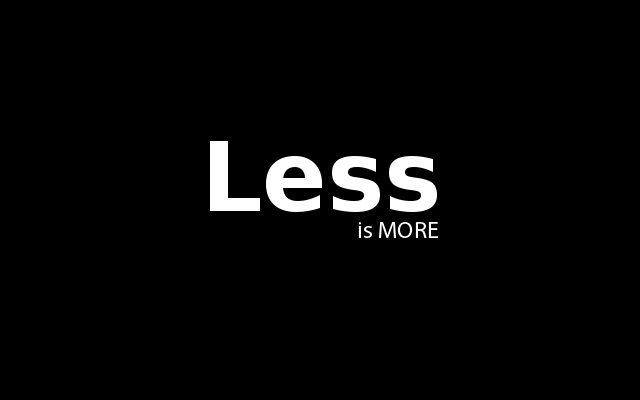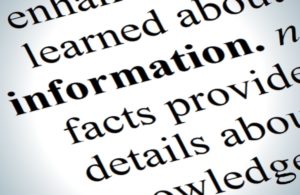So you’ve learned that most persuaders, most politicians, and most speakers are doing it wrong. By doing what they were taught in school, 95% of presenters actually alienate the audience. What are they doing wrong?
Month: March 2016
Convince Yourself
Who is your nemesis? Who or what gets under your skin and pushes your buttons?
Stop now! Actually stop and imagine your nemesis!
If you want someone to agree with you, don’t waste time trying to convince them you are right. Let them convince themselves–of what you want.
To defeat your nemesis, you have 2 superpowers:
- Be really specific (we’ll talk about this another day)
- Be really vague
 The Superpower
The Superpower
Introducing Captain Ambiguity.
Think of a simple syllogism (logical argument) about my appearance:
- People who eat too much are fat.
- I eat too much!
- ???
What do I look like?
It doesn’t take a doctoral degree in logic for you to fill in the blank. Even though I never told you I am fat, I know that you didn’t picture me skinny.
Captain Ambiguity knows how to NOT say the very thing you are supposed to think. Whether or not I was fat or skinny in the beginning was ambiguous. Captain ambiguous never tells you what to think, Captain Ambiguous lets you come us with it on your own.
A syllogism is a conscious, logical way to do it, but it’s much more fun to use the subconscious way …
The Power of Ambiguity
 Remember your nemesis? Remember what gets under your skin and makes you want to explode?
Remember your nemesis? Remember what gets under your skin and makes you want to explode?
What if you could turn the tables? Imagine how great it would feel if your nemesis were gone! Imagine if your nemesis could not resist your power!
Now I sell you something … (my product is SpeechDeck).
This isn’t actually a sales letter, it’s a communication lesson. Notice the ambiguity!
All I did was ask you about your nemesis. I let you fill in the blank. Your nemesis might be related to a sports competition, an insulting coworker, a manipulative family member, a bad habit, or a personal weakness. I don’t know.
Especially in large groups, most speakers make the mistake of giving only one of those SPECIFIC examples.
I could have asked you about the most annoying person at work, but that’s too specific. Not everybody reading has an enemy at work.
I could have asked about you greatest sports challenge, but that would turn off everyone in the audience who doesn’t participate in sports.
Instead, Captain Ambiguous replaces specific examples with ambiguity.
The Power of Metaphor
The ambiguity can be emotions, values, or subjective expressions, but if you can think symbolically, metaphors are the most powerful. Replacing specifics with metaphors abstracts your language so that it actually becomes more personal to the listener.
Your “nemesis” could mean anything (sports, business, dialog, family, etc).
Gets “under your skin” could mean anything (physical, emotional, etc.)
You want to “explode” could mean anything (physical, verbal, emotional, etc.)
Metaphors are ambiguous, yet they feel personal to the listener.
Instead of picturing some random image that the speaker forces, every listener pictures a “nemesis” that is completely different, yet so personal that it feels almost psychic. Any conclusions drawn by the listener come from within. Listeners feels like they are persuading themselves.
Case Study
Almost every politician knows this trick. I should have added it to last weeks post about how Donald Trump manipulates people (You are being manipulated, pt 2). I left it out because even most bad politicians know this trick.
Every politician on earth talks about the “american dream.” Why do they do that? Because it’s ambiguous. Nevertheless, you can picture something very specific about your “dream.”
 The only reason Trump does it better is because he’s using less cliche phrases “We will win.”
The only reason Trump does it better is because he’s using less cliche phrases “We will win.”
Notice the ambiguity of the word “win.” What does that actually mean? It will be completely different for everybody.
Obama used “Hope and change.” Notice he never actually explains the specifics about the “hope” or the “change.” He lets us fill in the blank. We “hope” for the “change” we personally want, and it feels like Obama agrees with us, even though he never specifically says that.
Captain Ambiguous to the Rescue
When replacing specifics with ambiguous metaphors, the only rule is that you replace something that does not apply to everybody with something that does.
If your example doesn’t relate to 100% of your listeners, try replacing it with ambiguity.
That means you can replace details with emotions or values. Not everyone can relate to “winning the state championship,” but everybody can relate to “feeling like you conquered (emotion) your nemesis.” Not everybody can relate to “losing the battle to cancer” but everybody can relate to “striving to do your best in ‘tough times'” (value/motivation).
You can’t sell me something directly unless you happened to know my exact problem. You can, however, sell me the superpower that vanquishes my “nemesis”–even if you don’t know what/who my nemesis is!
In my Speechdeck communication skills system, this technique is filed under the principle of “Empower the Individual.”
As long as I think you’re talking about the very specific nemesis I am picturing in my mind, I sell myself.
You are Being Manipulated, part 2
Regardless of who you support in the US presidential election, if you’re anything like me, you’re sick of it already–and there’s still almost 8 months to go. Every candidate hires consulting firms that know how to manipulate your brain, but only one candidate this year knows how to do it himself.
Donald Trump.
I know, I know. I’m tired of it too, but Trump is sooo good at psychological manipulation, that I have to cover it. I know this is not a political blog; it’s a public speaking blog, but if you learn only a fraction of what Trump knows, you will become an amazing speaker. Rather than drag this out over months, I want to expose Trump’s secrets all at once today, so that we can move onto something new.
“Psychological manipulation” is the secret to a great speaker. Just like when you sit down in a movie theater and willingly give you mind over to the movie, when you sit down to listen to an inspirational speaker you WANT the speaker to pull your heart strings, keep you attentive, and take you on a ride.
In that sense, when I say Trump is a great “manipulator,” that is not necessarily a criticism. Read the techniques below and you decide whether it is good or bad.
Either way, Donald Trump is a persuasive genius.
If you do not agree with that statement, that is most likely because you are not his target audience right now. If he doesn’t sound persuasive to YOU, it’s because he’s not talking to you.
So rather than talk about the politics of it, I want to share 15 manipulation tactics used by Trump, and focus on what YOU can learn from it to become a better presenter and take your communication and public speaking skills to the next level.
Normally, I wouldn’t reveal so many of my secrets in one post, but we may never have another example like Trump. Therefore, I’ll go deeper than just the 8 basic SpeeckDeck principles. The techniques below are based on specific “skills,” each of which I categorize under one of the 8 principles.
C Clarify Your Content
1. Headline
The Donald constantly gets accused of using simplistic language. This is not because he’s stupid, it’s because studies show that simple language persuades better than complex language.
While I cannot endorse this YouTube channel in general, this particular video is right on.
The video shows how Trump uses short rhythmic sentence structure, simple language, and emphasized keywords.
Here are his common themes:
- “We will win, and we will win, and we will win”
- “We will make America great again”
The other candidates rattle off dozens of points, thinking that more is better. Trump makes many points but relates them all back to just one emphasized theme. If you watch the video you’ll see how he uses short clear sentence structure and emphasizes specific keywords.
Takeaway: Tie everything to a single takeaway message.
2. Storyline
Most politicians give talking points. Donald gives points too, but with every point he tells a story:
- America used to win.
- We are now losing because of <fill in the blank>.
- Elect me and we will win again.
It’s not about the facts; it’s about the story. The most important part of telling a story is dramatizing the “bad guy.” If you don’t have a “bad guy,” you don’t have a story.
Takeaway: Turn your message into a story with an enemy and a transformation.
3. Illustrations
Illustrations are the details to prove your headline. Donald gets criticized for not giving details. He’s actually avoiding details on purpose. Countless psychological studies have shown that people don’t make decisions based on rational information. People use information to JUSTIFY their decisions. (See Big Lie and Big Lie pt 2)
When you don’t understand this principle, you will criticize Trump for giving contradictory answers:
- “Knock the crap out of him” vs. “I certainly don’t condone that.”
- “I’m totally against abortion having to do with Planned Parenthood” vs. “Millions and millions of women … are helped by Planned Parenthood.”
- “Bush lied” vs. “I don’t know if he lied.”
- “I know nothing about white supremacists” vs. “I disavow.”
- “I want talented people to come to this country” vs. “you’re going to have a deportation force.”
Most politicians make the mistake of believing contradictions to policy statements like this actually matter.
Trump knows better. These contradictory statements are no accident. Trump persuades people to loyalty first (see below) then gives them contradictory information. This is brilliant manipulation, because regardless of what you actually believe, you will find a statement from Trump to justify your support.
If you like Trump and you’re a KKK member, you’ll justify your vote because trump didn’t immediately disavow David Duke, and you rationalize that that means he must be a racist like you. “Of course he has to disavow publicly,” you say.
If you like Trump and you despise racism, you’ll justify your vote because Trump did disavow the KKK, all that talk about taking 24 hours to make a statement is just “media hype.”
This duality only works if Trump first makes you identify with him (see below).
Takeaway: Don’t give people information, give them justification.
C Inject Anticipation
 One of Trump’s greatest skills is holding your attention. In fact holding attention is also step one in great public speaking.
One of Trump’s greatest skills is holding your attention. In fact holding attention is also step one in great public speaking.
Check out the tweet from the New York Times at right that shows how much free publicity Trump has generated.
Trump’s free media attention is off the chart.
Here’s two ways he does it:
4. Opposition
Trump is controversial on purpose: muslim bans, Mexican rapists, torture, etc. No matter what your opinion, hearing emotionally charged language gets you to pay attention, and Trump knows it.
He’s not trying to make everybody like him now, he’s trying to monopolize your attention. Here are some more toned down ways he introduces opposition:
- “I know it doesn’t sound presidential … “
- “You’re not going to like it, but …”
Takeaway: Tease the listener with something they have strong feelings about and they’ll keep listening. (See this post)
5. Novelty
The reason that controversy doesn’t hurt Trump is because he changes your focus constantly. Most speakers are afraid to make a mistake. Trump doesn’t care, because he constantly interrupts with something completely new.
Watch any trump interview or rally, and it seems like he’s scatter-brained, interrupting others and even himself with random interjections.
This is not an accident. Not only does he control the media this way, he controls you, by preventing your rational mind from dwelling on any one statement (other than his headline) for more than a few seconds.
Whether you like him or not, you’re brain is continuously and subconsciously asking: “What will he do next?” and you keep listening.
Takeaway: Continuously inject the new and unexpected.
R Develop Relationships
The “Relationships” (or Social Identity) principle is the single most important factor in politics. To have great persuasion or public speaking skills you to find a way to identify like-minded groups from the lectern.
6. Profiling
Profiling might sound like a bad word, but psychologically speaking your brain makes judgement about people–whether you like it or not. The single most powerful persuader is not logic. The most powerful way to persuade is to demonstrate that your position is consistent with the listener’s social identity.
All the Republicans who are attacking Trump don’t understand this, or they wouldn’t attack him. Trump has defined basically 2 group identities: 1) “People who put America first” and 2) “People who are strong.”
He’s done this by labeling all of the “out-groups.” (See “You are being manipulated, part 1“)
Here are the groups that are weak and don’t put America first: Media, Politicians, Republicans, Democrats, Muslims, illegal immigrants, etc…”
Every time someone like Mitt Romney who self-identifies as a “Republican” bashes trump, Trump followers become more loyal to Trump. Why? Because the in-group is “America over party,” and when the anti-trumps promote a “party first” candidate or mentality, it only reinforces Trump’s message. When I coach or teach classes, I often use Mitt Romney as an example of what NOT to do. His obvious misunderstanding of this principle compared to Obama is what lost him the election.
Trump seems to be the only one smart enough to know that in-group loyalty wins over logic EVERY TIME. He is laughing all the way to the oval office, because his opponents are actually helping him!
Takeaway: Label the in-group and the out-groups.
7. Association
If you pay close attention, you’ll see that every individual is placed into one of these groups, guilt by associations.
- “Politicians are all talk and no action.” (weak)
- “I will be the greatest jobs president God (strong) ever created.”
- “[China] (Not america/strong) … they kill us. (America/weak)”
- “I don’t have time for political correctness” (strong v weak)
- “I don’t have to give you a website [like my opponents] (establishment/self first) because I’m self-funding my campaign. (america first/strength)
Takeaway: Make sure you share a group identity (and enemy) with the listener.
8. Conformity
The great irony of all great persuaders is that they get you to conform to the in-group in the name of “anti-conformity.”
Think hand raises, repeat-after-me, ritualistic reactions to protesters, etc. In fact, to a Trump loyalist, there is actually a stigma on anyone who disagrees or leaves the fold. That is the very definition of conformity, all done in the name of non-conformity.
That’s why using the power of social identity is the most effective way to manipulate others.
There’s a reason why he’s constantly quoting polls and telling you who “agrees” with him. It’s one of the most commonly known influencers called “social proof.” Your brain has a built in shortcut, if a decision has to be made, and you have doubts or not enough information you will defer to the group’s decision:
- “No matter where we go we have massive crowds.”
- “I went through the roof in the polls”
- “You’ve been reading a lot about …”
- “I have the biggest business people in the world endorsing me.”
The irony of this technique is that it works best when it’s NOT true. When he says “You’ve been reading a lot about …” the truth is that almost none of us have been reading it, but we all feel like we’re the only one–after all, he says everybody has been reading it. Putting you in that position of perceived ignorance, only increases the likelihood that you will defer to “the group” that Trump just invented. You’re more likely to defer to the group because you have no information about it, but apparently the group does.
Takeaway: Create expectations to which the whole group must conform.
M Reveal the Messenger
This “Reveal the Messenger” principle is one of Trump’s greatest strengths. At any presentation, you have to be (or at least appear to be) authentic and unique. When I coach public speaking skills, this is usually at the top of the list.
9. Ability
What is amazing to me is that Trump reveals his uniqueness in a way completely different than I usually coach others to do. He succeeds because he knows how to play to his own strengths.
Whereas most politicians are afraid to let us see anything unscripted for fear of failure, Trump will tell jokes, go without a teleprompter, improvise, etc. He does this because he can! The reason someone like Obama doesn’t go off script is because he’s not as good off-script.
Trump plays to his strengths. He intentionally creates press conferences and events in which his talents shine, and avoids venues where his talents don’t.
He’s not great with details or political experience, so what does he do, he shows off his own strengths: quick thinking, trump-isms, humor, business experience, etc.
Takeaway: Show off.
10. Authority
Perhaps more than any candidate I have ever seen, Trump creates an air of authority. Notice that he never backs down, never apologizes, and never accepts facts that contradict him–even when he knows he is wrong.
He obviously knows the studies have shown that confidence is more persuasive than truth. The masses follow authority, not truth.
He acts as if he already has the job. He’s accused of being a bully, but he doesn’t care. He defined the in-group (see above) around strength. The end result is that everybody else, including his competition and press back down, and he wins the confidence game.
Most politicians try to prove authority with facts and figures. Trump just assumes authority, no proof necessary. Because he says it with energy and passion, the authority is pre-supposed.
Another thing that works better than truth if you want to persuade someone: celebrity. Is it a coincidence that Trump made himself a celebrity first? NO!
Takeaway: Assume the authority you want others to perceive.
11. Authenticity
I don’t know if Trump is being authentic or not, but he uses two basic tactics to appear genuine.
- Reactions – He makes it a point to react to everything. Sometimes the reaction is imperfect, but that’s okay. He reacts to EVERY insult, EVERY interruption, EVERY accusation, and EVERY inference. Any reaction that is fast and immediate appears unscripted, and therefore genuine. The end result, even if you disagree, you subconsciously perceive authenticity anyway–and this reinforces the “non-politician” group loyalty.
- Values – Psychologically, people will excuse almost any bad behavior if you have justifiable motivations. Listen carefully, and you’ll see that all of his statements laced value based motivations. The values don’t have to be real to feel real. These values are present even if not explicitly stated: excellence, concern for the weak, fun, independence, winning, “I like to solve problems,” etc
Takeaway: Explain WHY, not what.
I Empower the Individual
12. Worth
Every great salesmen knows that you have to give compliments. If you make people feel good about themselves, they will feel good about you. What most people don’t know, is that compliments don’t have to be true to work.
- I love our vets
- I love your sign
- I love your flag
- I love your costume
- I love you
- I love the constitution
- I love the 2nd amendment
If you actually attend a live trump event you will see trump react to individuals in the crowd. He will call people on stage, he will repeat their words, read their signs, and react to their interruptions.
Instead of stifling the crowds, he actually encourages behavior that most politicians would hate. This makes everyone in attendance feel special.
Takeaway: Make them feel good about themselves
S Engage the Subconscious
13. Emotion
Trump does great job at maintaining a tough guy non-emotional image. But don’t be fooled. He’s manipulating your emotions constantly.
One way he does this is by personalizing the enemy. Notice that he doesn’t just criticize “the establishment,” but insults specific politicians. He doesn’t just criticize “the media” but targets specific journalists as enemies. He doesn’t just criticize “the economy” but singles out specific corporations by name.
The more personal the enemy, the more convincing it is. In terms of emotion there’s a lot more we could say. Almost all of Trump’s persuasive is emotional rather than rational, as it should be (if you want to win).
Takeaway: Create a stereotype that people can understand.
14. Sensation
One of the most successful things Donald Trump has done is to make his policies and insults visual.
We’re going to build a wall!
Whether you like it or not, you can picture a wall. What image represents the policies of Marco Rubio? You don’t picture anything do you?
Trump encapsulates his message in something that you can remember and visualize. When insulted by the ex-president of Mexico, trump replies:
The wall just got 10 feet higher!
Is that true? Of course not. The wall will be whatever the budget and congress agree to. It has nothing to do with an insult. But saying that you’ll raise the wall 10 feet is a VISUAL statement, and so everybody cheers, even though in reality the statement has zero practical meaning.
Takeaway: If they can’t picture it they can’t remember it.
15. Priming
As one final example, let me demonstrate how Trump sets you up linguistically.
For example, he loves to give all of his opponents visual nicknames: Low Energy Jeb, Little Marco, etc. Notice that the monikers are always cleverly crafted as “Heads, I win. Tails, you lose.” They are always setups.
For example, when Trump criticized Jeb bush as “low energy,” Trump places Jeb in a no-win situation. If Jeb tries to show more passion, Trump compliments him for trying harder and following Trump’s advice. Trump wins. If Jeb doesn’t show more passion, Trump’s low energy label proves correct. Trump Wins.
Here’s an even more devious linguistic trick: Trump blames “our communist friend” Bernie Sanders for violence at his rallies.
Trump is essentially priming you to agree with him whether you like it or not. Your conscious brain can only reason about one thing at a time, so trump always gives you duality in his monikers that force your subconscious to choose.
By calling Sanders a “communist friend,” Trump forces your brain to ask either, “Is he really a communist?” or “Is he really a friend?”
But Trump wins either way, because by default your brain will accept the truth of the statement it ignores.
If your brain gets hung up on “Is Sanders a communist?” you are subconsciously accepting that he is a “friend.” That helps trump tap into the Bernie movement in a positive way. Trump wins.
If your brain gets hung up on “Is Sanders a friend?” you are subconsciously accepting that he is a “communist.” That hurts Sanders in a negative way. Trump wins.
Takeaway: Control what the listener has time to reason about.
Conclusion
Trump is a master persuader. Most of the things the talking heads on TV criticize him for are not actually mistakes. He is doing those things on purpose, and you are being manipulated.
I have just given you 15 examples that show that Trump knows exactly what he is doing. Perhaps, one or two of these skills are built into Mr. Trump’s personality, but you cannot successfully implement all 15 of these techniques unless you have studied and mastered the art of persuasion.
In truth, there are many other tricks up Trump’s sleeves that we could talk about. I merely tried to focus on the ones that could relate more to great presentations and public speaking.
Does this mean you shouldn’t vote for Trump? I am not saying anything bad about Trump supporters. If you understand that Trump is using these techniques and still wish to support him, you can make a legitimate case for that. Perhaps you think being the best persuader in the room is a positive trait for a president.
This blog is not a political statement, however, in the interest of transparency I will state my opinion. I cannot vote for Trump precisely because of his persuasive genius. When it comes to persuasion, Trump knows more than Obama, more than the Bushes, more than Pelosi, more than McConnel, more than Clinton and Sanders, more than Cruz and Rubio, more than Reid or Ryan, and more than I do.
No matter how good his heart, giving that much authority and power to someone who can manipulate those around him and the public with such skill, scares me. I wouldn’t trust mother Teresa with that power. If Trump wanted to lie, he could convince the whole congress and us of almost anything. I think the president of the united States should be a BAD liar.
If trump DOESN’T win the Republican nomination, it will not be because his opponents succeeded, but it will be because Trump pushed it too far. Cruz and Rubio are completely oblivious to how trump is winning.
They have a shot of winning only because Trump has created such a strong sense of “identity” that the “anti-trump” identity was created with it. In business, a 35% market share is HUGE. In politics, you’ve got to get more than that.
If Trump DOES win the Republican nomination, he will completely obliterate Clinton or Sanders in the general election. In comparison, Clinton and Sanders have virtually no persuasive skills.
A Trump landslide might be hard to believe now because so many people are anti-trump. But let me remind you of my opening remarks: he’s not talking to you yet. Right now, Trump is only speaking to a narrow slice of voters.
The proof of this post will come when Trump actually makes the switch from the primary to the general election. When he starts directing his skills toward you, you will be shocked at how good he suddenly starts to appear.
The other candidates will try to manipulate you too–they’re just not as good at it. Vote for whoever you want, as long as you know you are being manipulated.
Click Here to Subscribe for Weekly Communication Tips
or use the social network links in the top nav bar.
A note on sources: A commenter pointed out some similarities between this post here and Scott Adams’ blog. Please let me address any appearance of plagiarism. I hope this blog is VERY similar to Scott Adams analysis because he is one of the only commentators online who is getting this RIGHT! I discovered his blog shortly after writing part 1 in January 2016. I remember, because Scott and I had noticed many of the same techniques. In particular, his blog mentioned social identity in Trump’s persuasion just like part 1 that I had just written. Without doubt, some of the examples I shared on this page were insights Scott and I both noticed independently, and I suspect one or two actually did come from his blog. I honestly don’t remember. The content that is unquestionably mine is the SpeechDeck system. Years ago I organized everything I knew about attention and persuasion into a system of 21 communication skills. My attempt on this page is only to line up examples of Trump’s words with those principles (shown in headings). I make no claim to have any special insight here. I didn’t plan on writing this. As it turned out I merely felt a responsibility to share these things as a public service. I went through 15 of the 21 principles in my system, and simply shared the first examples that came to mind. This is a public speaking blog, not a political blog. If you want a play-by-play on Trumps persuasion tactics, Scott Adams’ blog is probably the best place I know, and I recommend it.
The Big Lie, part 2
If you ever spoke to somebody with the intention of giving them “information,” let me give you a sobering statistic: studies show that no matter how much information you speak, the listener remembers the same amount.
In other words, it doesn’t matter whether you speak for 5 minutes of 5 hours, the listener remembers the same amount of information!
It doesn’t matter whether you give them 5 important details or 50 information gems–they will remember the same amount.
And it gets worse–well over HALF of the listeners will remember just two or fewer things!
In you haven’t read last week’s post, check it out now: The Big Lie, part 1
Once you have read last week’s post, let me reiterate the main point. The idea that you can communicate substantial information to people by speaking is a lie! You should always remember these two rules:
1: Use WRITTEN media for INFORMATION
2: Use VERBAL media for INTERACTION / IMPRESSION
The curse of verbal information
People can only remember a limited amount of verbal information. That’s been proven over and over. The overwhelming majority of listeners remember just one or two things.
Sure, one person in the room might remember 10 things (probably because he wrote things down), but because every person has a limit, you know one thing is sure:
The more information you present, the less control you have over the impression you make!
If you speak for 15 minutes and give just one tidbit of information, the listener has only one choice, remember the one thing, or remember nothing.
If you give the listener a 12 step program, and the average listener remembers just 2 steps, how much control do you have? NONE!
Even if the listener remember 5 things, you don’t know which of the 12 steps they will be! You essentially give up control, and the listener because just as likely to remember the least important point as the most important one.
So I repeat:
The more information you present, the less control you have over the impression you make!
Information in Politics
 You want simple proof. Look at the recent Republican presidential primary elections.
You want simple proof. Look at the recent Republican presidential primary elections.
There are some candidates that love to give long discourses on facts and information. The king of information on the Republican side was Rand Paul, and he never earned more than 9% support in any poll (usually less than 5%).
Donald Trump gets criticized more than any other candidate for never having any substance (information) and yet he’s winning. It’s not an accident. Trump is a persuasive genius, and he’s withholding information on purpose!
Every time you see a focus group on TV, the “concerned citizens” will always declare that they want the presidential candidates to argue on substance (information). This is a total LIE!
These honest citizens don’t know it’s a lie. The lie is not that people think they want information. They really do think they want information–because we’ve been taught that information makes as informed voters.
The lie is that information persuades you to change your mind. Information is only the rational mind’s excuse. Read this post for an explanation of why you shouldn’t believe that “explanation.” You shouldn’t believe explanations, you should believe results–Trump is winning, Paul had to bow out.
Honestly, every Republican candidate agrees on 80% of the “information.”
If the rational mind mattered most, the candidate who presented the information the best would win. You and I both know that the candidate with endless information puts everybody to sleep and loses every time!
Use LESS information
 Of course I’m not asking you to avoid information. I’m merely trying to persuade you that you’ll be a better presenter and a better speaker when you use less information.
Of course I’m not asking you to avoid information. I’m merely trying to persuade you that you’ll be a better presenter and a better speaker when you use less information.
My wife teaches public school. On a regular basis she comes home exasperated. The story generally goes like this: I explained the assignment clearly. I gave them clear 3 steps. I repeated it twice, yet 5 minutes later 80 percent of the students come up and ask me “what am I supposed to do?”
I remind her every time of the big lie: “You can’t present information verbally!”
Whether you like it or not, when you present verbally, you must start with the assumption the nobody is listening! It’s not necessarily that they don’t want to listen, it’s that everybody has a physical limit on what they can learn verbally.
If you are a teacher, and your job is to teach INFORMATION, you have only one option:
INFORMATION must be WRITTEN
The teacher can write it, or better yet, make the students write it!
For everybody else, your goal should be to INTERACT in the way that makes the right IMPRESSION.
My SpeechDeck communication system is all about making that impression stick!










